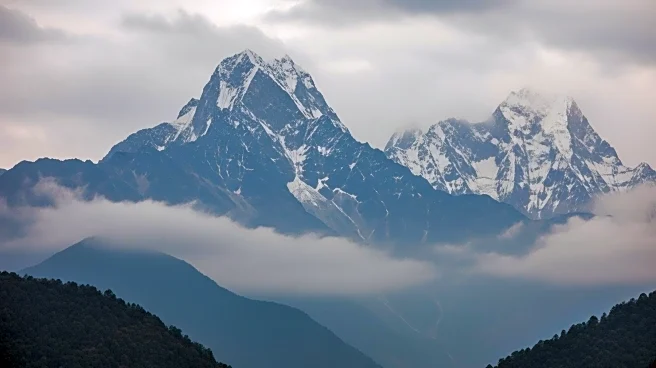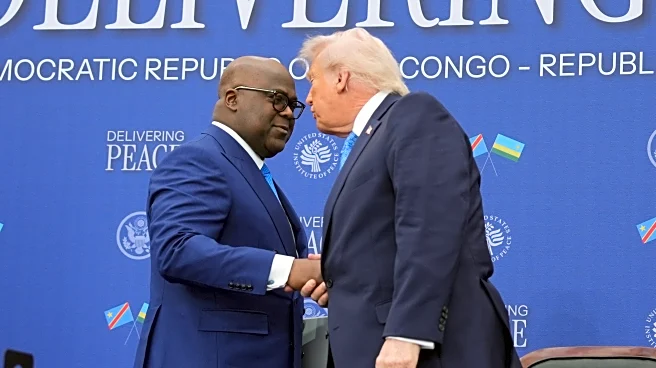What's Happening?
The U.S. State Department has issued a 'Level 3: Reconsider Travel' advisory for Nepal due to ongoing civil unrest. The advisory follows recent protests and demonstrations, particularly in Kathmandu and Pokhara, which have turned violent, resulting in deaths, injuries, and curfews. The unrest was sparked by a government-imposed social media ban, leading to widespread protests and the resignation of Nepal's Prime Minister KP Sharma Oli. An interim prime minister, Sushila Karki, has been appointed until elections in March 2026. The advisory warns travelers to have a plan to leave Nepal that does not rely on U.S. government assistance, monitor local media, and avoid crowds and demonstrations.
Why It's Important?
The travel advisory highlights the volatile political and social climate in Nepal, which poses significant risks to travelers. The unrest and government response reflect broader issues of governance and civil liberties in the country. For U.S. citizens and businesses with interests in Nepal, the advisory underscores the need for caution and contingency planning. The situation may also impact Nepal's tourism industry, a vital part of its economy, as potential visitors reconsider their travel plans.
What's Next?
Travelers to Nepal are advised to enroll in the Smart Traveler Enrollment Program (STEP) for updates and alerts. The U.S. State Department will likely continue to monitor the situation closely and update the advisory as necessary. The political developments in Nepal, including the upcoming elections, will be critical in determining the country's stability and the potential lifting of the travel advisory.










